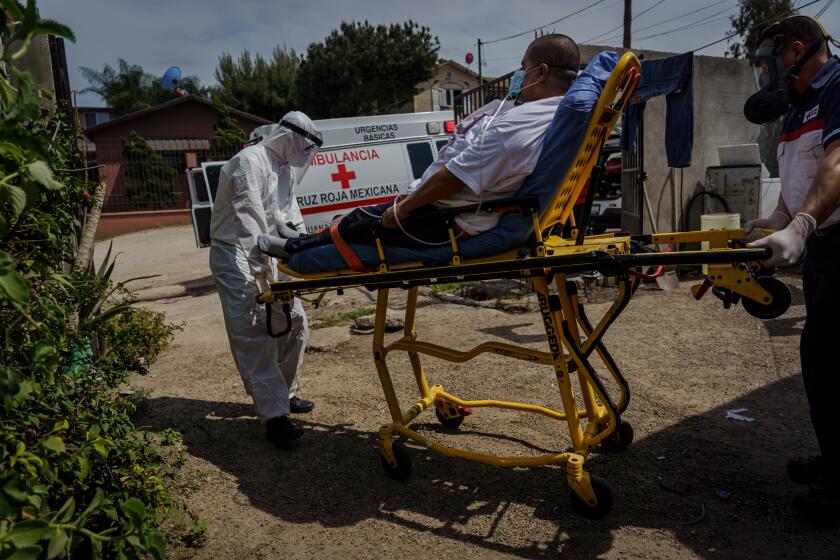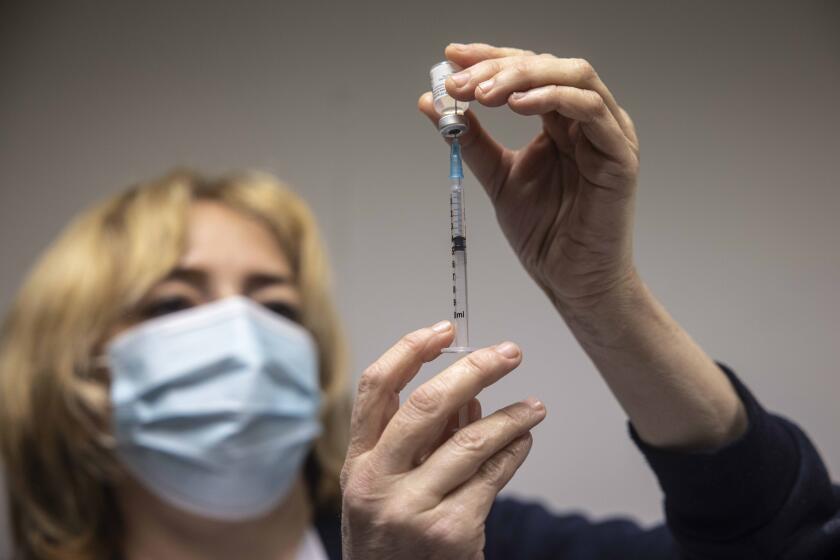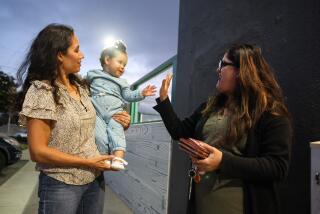With Mexico’s vaccination program lagging, wealthy Mexicans are flocking to the U.S.
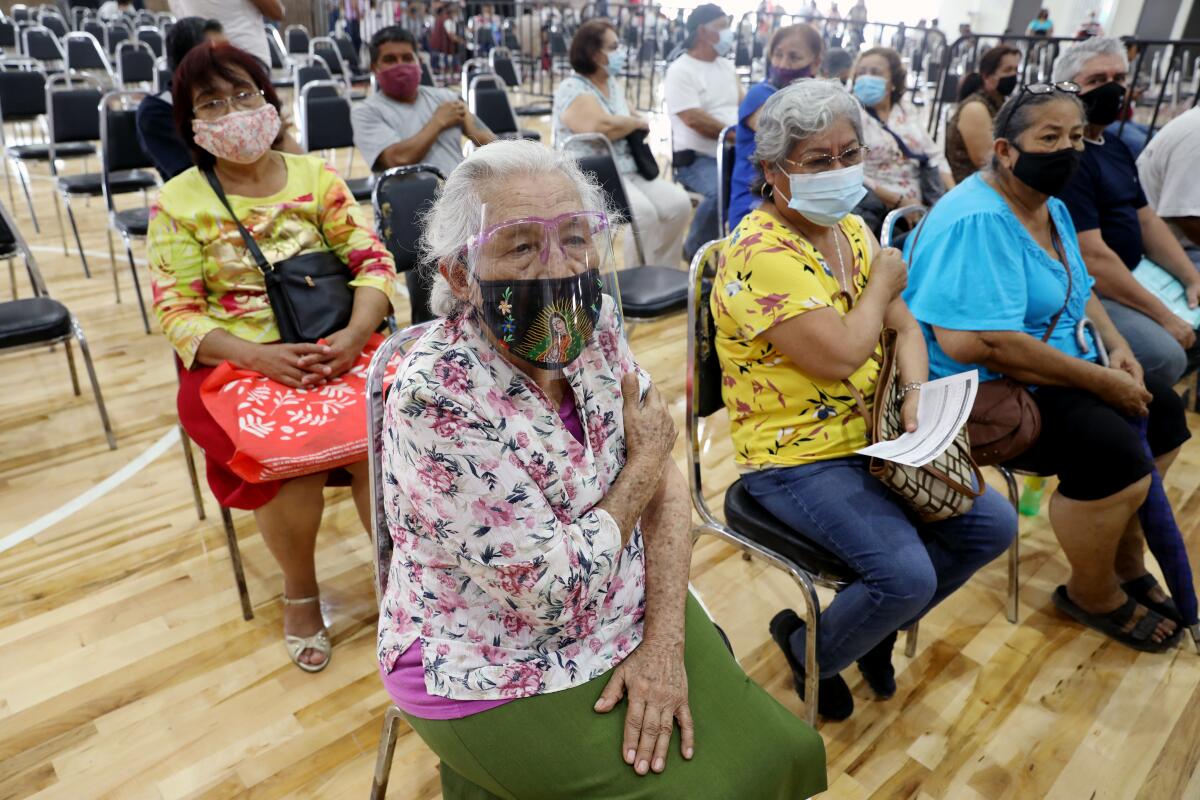
- Share via
SAN PEDRO GARZA GARCIA, Mexico — Here in the wealthiest city in Latin America, there is almost nothing money can’t buy.
Diamonds from Tiffany & Co. Luggage from Luis Vuitton. Ferraris, Maseratis, Bentleys.
But there is one sought-after item that isn’t readily available in San Pedro Garza Garcia: COVID-19 vaccine.
Mexico’s vaccine rollout has been painfully slow, with just 4% of the nation’s 128 million citizens having received at least one dose. Healthcare analysts say that the original target of vaccinating at least two-thirds of the population by August is a fantasy, and that inoculation efforts will stretch well into next year.
Mexico’s vaccination plan has been delayed after Pfizer said it would be shipping fewer doses of the shots than originally planned.
Now many of those with means are flocking to the United States for shots.
“Mexico is lagging behind,” said Mauricio Fernández Garza, a 70-year-old businessman who served three terms as mayor of San Pedro Garza Garcia, a suburb of Monterrey in northern Mexico. “A lot of people have access to the United States and they are going to protect themselves.”
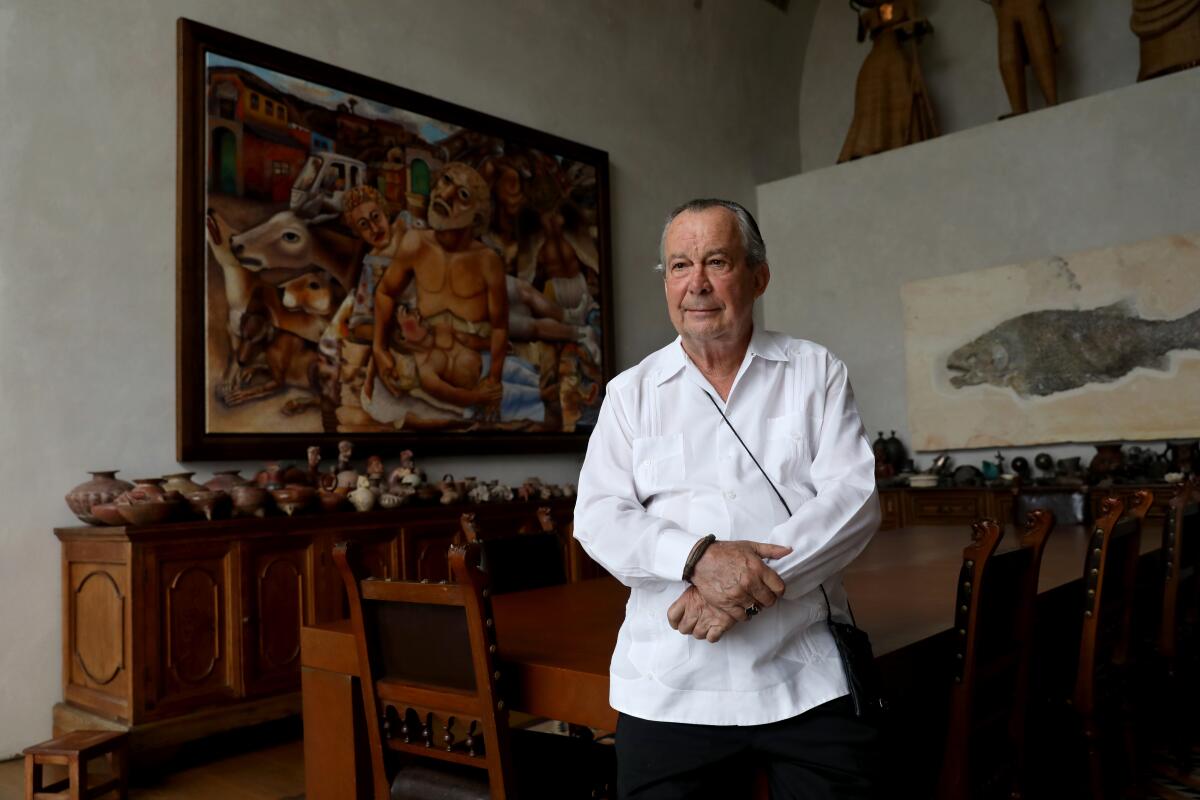
In January, Fernández chartered a private jet to fly to Brownsville, Texas, and then drove to Los Fresnos, a farming community about 20 minutes away. He waited in a short line at a vaccination site, provided his Mexican passport as proof of identification and received his first dose of the Moderna vaccine. He made the same trip the next month for his second dose.
He estimated that a few thousand residents of his city — which has a population of 120,000 and is home to the headquarters of some of Mexico’s biggest companies — have also traveled north for vaccination.
Not that many would talk about it. Many Mexicans are loath to speak about getting vaccinated abroad, afraid of being labeled elitists.
Juan José Origel, a Mexican television host, was pilloried on social media after he tweeted a photo of himself receiving the shot in Miami, along with the phrase, “how sad that my country didn’t provide me with this security!”
“With money, you can do anything,” one Twitter user responded.
“You are without shame,” wrote another.
Other high-profile vaccine tourists have been exposed by the Mexican media. The news site Sin Embargo reported that two Mexican Supreme Court justices went to San Antonio to receive inoculations.
The phenomenon highlights both Mexico’s deep inequalities and its struggle to protect its residents against the coronavirus.
Last week, the government here publicly confirmed what many had long suspected: The number of people lost to the pandemic is more than 320,000, much higher than totals previously reported. The “excess death” data suggest that Mexico ranks No. 2 in COVID fatalities, behind the U.S., which has recorded more than 550,900 deaths, according to Johns Hopkins University.
President Andrés Manuel López Obrador said late last year that Mexico had made deals to purchase enough vaccine to inoculate the entire country and that the end of the pandemic was near.
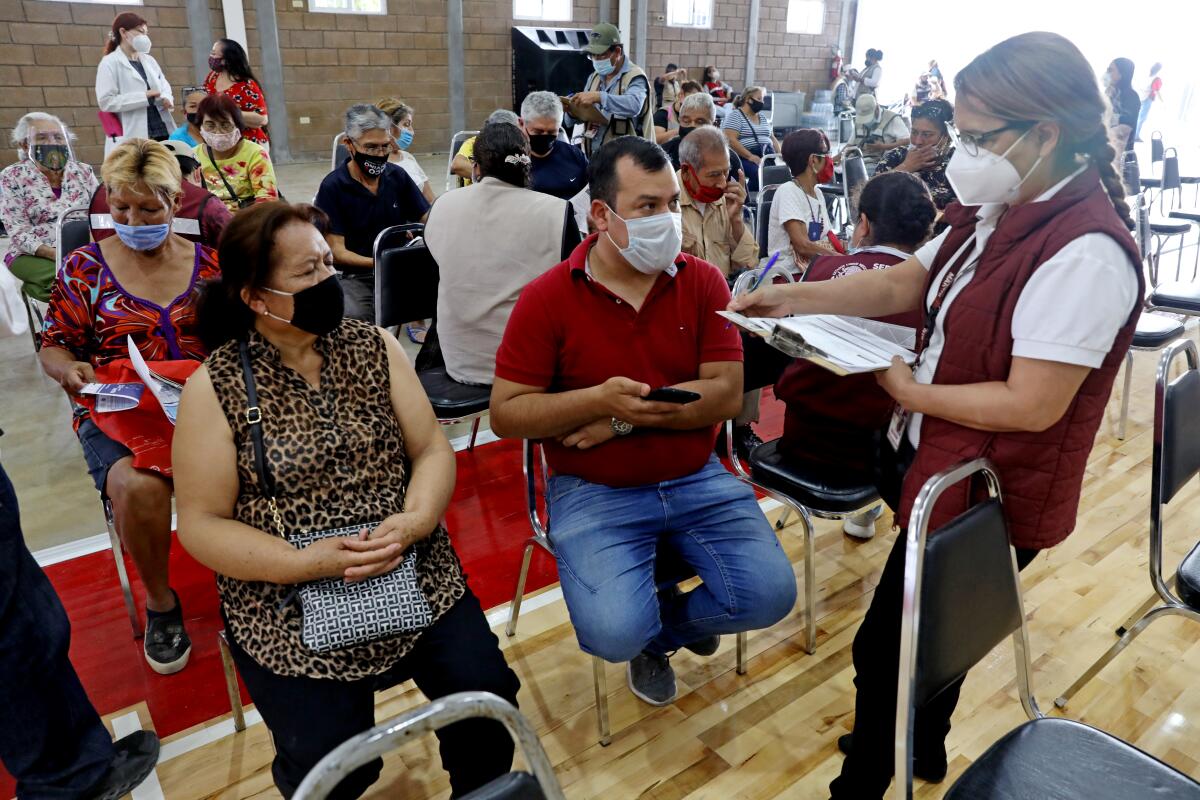
But the doses — from U.S. drugmaker Pfizer, China’s CanSino Biologics and the British company AstraZeneca — have been slow to materialize, and López Obrador’s rollout strategy has been heavily criticized. He has put an emphasis on first vaccinating the elderly in rural areas, where social distancing is generally easier than in crowded cities, and has excluded medical professionals not working directly with COVID-19 patients.
Because of that, doctors, nurses and other health workers who can afford it have been flying to the U.S. to get vaccinated, said Francisco Moreno, who heads the COVID-19 unit of Mexico City’s private ABC Medical Center.
Many have gone to rural areas of states such as Texas where there was an excess of vaccine.
Such trips are expected to increase in the coming months as states across the country, including California, make their vaccine programs available to all adults.
Mexicans who can afford to fly have an advantage, since land borders with Mexico are still closed to nonessential traffic.
Health officials say vaccine tourism is legal. Only about half of U.S. states require proof of residency for vaccinations, and none insist patients show proof of citizenship.
Still, the issue has sparked controversy in some American communities where Mexicans have been turning up in large numbers.
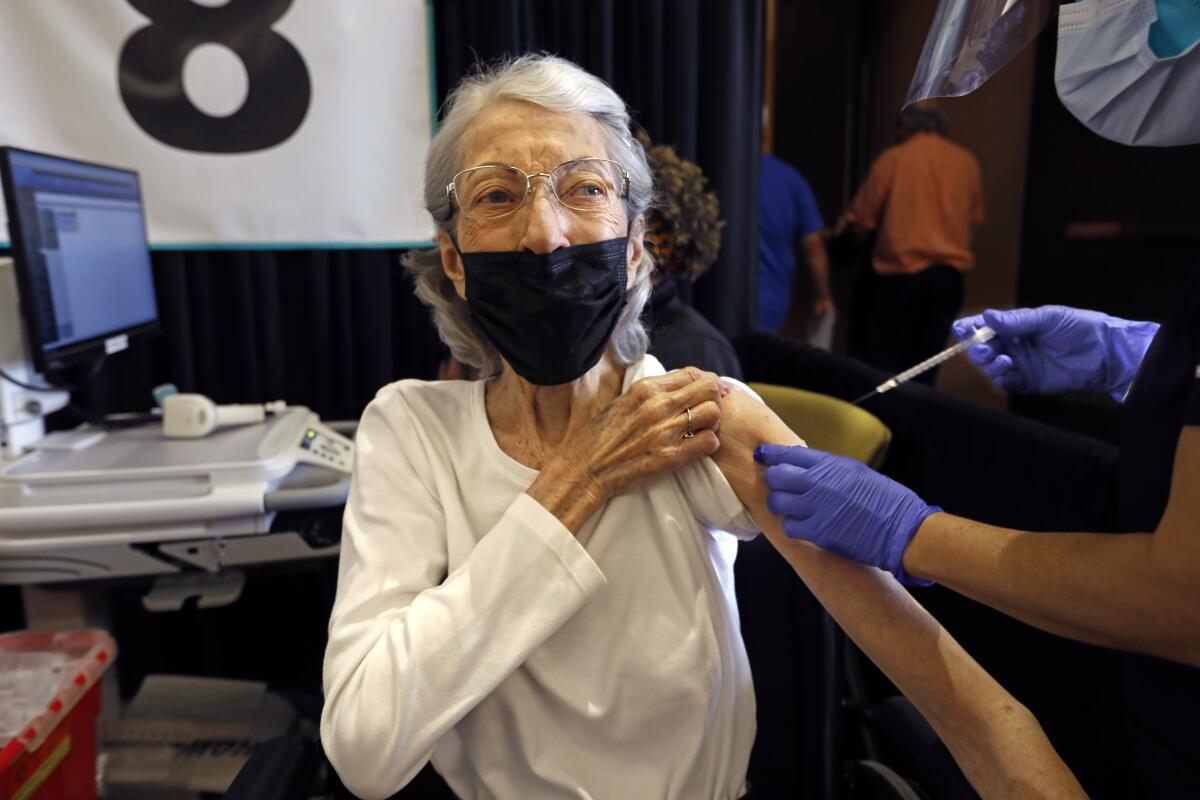
“It’s not illegal, but obviously they’re taking advantage of the system,” said Texas state Sen. Eddie Morales, whose district hugs the U.S.-Mexico border.
Poor countries face long waits for injections as the U.S. and others buy up nearly all the global supply of Pfizer and Moderna vaccines.
The policy of not requiring proof of residency was made so that workers who are in the U.S. illegally would not hesitate to get inoculated. But Morales said that loophole is being exploited by wealthy foreign nationals, including a dozen Mexicans who arrived in January on a private plane in the small town of Pecos, got vaccinated and left.
“I was receiving calls from people saying, ‘Hey, what’s going on? I can’t get a vaccine from my father who’s over age 65 and yet these people are coming in and cutting in line,’” said Morales, who brought those concerns to the state’s health commissioner.
After facing questions about the phenomenon, Texas Gov. Greg Abbott stressed that “Texas vaccines are for U.S. residents. Texas vaccines are for Texas residents.”
But there has been no policy change.
Among the dozens of people getting their second Pfizer shots Friday at a hospital complex in Edinburg, Texas, were several Mexican nationals.
Officials there said they had been been vaccinating about 2,500 people daily. Dr. Robert Martinez, an official overseeing vaccines at the site, said state officials instructed his team to ask only for names and birth dates.
“We’re not supposed to be asking other questions, address or citizenship,” he said. “In fact, they’ve asked us not to.”
“The aim is to vaccinate everyone,” Martinez said. “There’s a lot of people who live over there and work here. We share a lot of people who are legally OK to come back and forth.”
“For us, it’s a matter of the more, the merrier,” he said.
Laura Heflin, 60, a sheep farmer from McAllen who had brought her great-aunt to get vaccinated, said she had no problem with visitors from out of state or Mexico coming to Texas for shots.
“We should give it to anyone in line because there are so many rednecks who don’t want it,” she said.
Her great-aunt, 92-year-old Mary Booth, didn’t object either. “But take care of our local people first,” she said.
Many wealthy Mexicans who fly north to get vaccinated may have second homes and businesses in the United States.
In San Pedro Garza Garcia, it’s not uncommon for residents to have season tickets to Dallas Cowboys games.
In an interview at his hillside estate overlooking the city, Fernández, the former mayor, talked up the economic benefits the United States enjoys from vaccine tourism.
“You spend a lot of money on food and hotel,” he said. “The cost of a vaccine is much less than what you spend while you’re there.”
Linthicum reported from San Pedro Garza Garcia and Hennessy-Fiske reported from Edinburg. Cecilia Sanchez in The Times’ Mexico City bureau contributed to this report.
More to Read
Sign up for Essential California
The most important California stories and recommendations in your inbox every morning.
You may occasionally receive promotional content from the Los Angeles Times.
